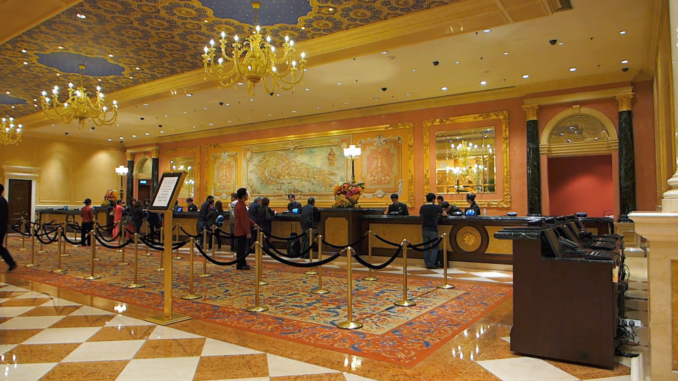
By Debbie Carson, Associate Editor
Next-generation property management systems are driving efficiency in hotel operations in unprecedented and extremely valuable ways. For those hotels and resorts that haven’t yet upgraded their technology capabilities, 2018 may be the year to do so.
Today’s property management systems are automating virtually all of the different functions that take place at a hotel. These include core functions like guest registration, room inventory maintenance, financial accounting and housekeeping assignment.
Importantly, next-generation systems now generally offer integrated channel management capabilities, including connectivity with web booking engines and global distribution systems to automate transactions with booking agents.
These also include functions that encompass virtually all other aspects of hotel operations, from spa operations to banquet facility management. Many systems now integrate with third-party point-of-sale (POS) software for retail and restaurant operations.
As one participant in the research study noted: “The new breed of systems is all about enhancing the quality of guest services and increasing staff productivity. It’s also about streamlining operations. All the new features and capabilities have actually ended up making all of our hotel’s operations a lot simpler and a lot more effective.”
The advances in features and functionality include specialized marketing and sales capabilities for running targeted promotions and campaigns. Some systems tout robust data analysis tools and performance dashboards for generating business intelligence, including insights into emerging trends and guest behaviors by segment.
A next-generation PMS reduces overhead and minimizes costs through increased efficiency while increasing occupancy rates, RevPAR and overall profitability through better data accessibility and process efficiency. In most cases, the solutions also provide hotel operators with better analytical reporting, allowing them to gain deeper insights into guest behaviors.
Different hotel operators are bound to have different expectations of a next-generation PMS, given the differing requirements of their properties. A full-service hotel or resort, for example, would likely require a far more robust and comprehensive system than, say, a small, limited-service hotel or motel, which may need only a system that can automate basic functions like guest bookings, housekeeping, guest charges and maintenance management.
A full-service hotel or resort would likely need a PMS that can support complex reservation, scheduling and inventory needs, with a host of features designed to support an exceptionally high level of guest service. The system would also need to integrate with hotel restaurants and cocktail lounges along with spas, banquet rooms, dry cleaning and other facilities, and perhaps even such guest services as bed turndown service, newspaper delivery and room service.
Does the system need to handle corporate expense account management? Does it require its own activity booking system or need to integrate with spa and dining reservation systems? If group is a significant portion of the hotel’s mix, are the group block allocation and contracting capabilities up to the task, and any required sales and catering integration in place?
While hotel operators at different properties will invariably have different requirements and priorities, there are also many requirements they are bound to have in common. These center, first and foremost, on the desire to improve operational efficiency across all parts of the property.
For those hotels that are not currently utilizing a next-generation system to achieve peak operational efficiency, 2018 may be the year to upgrade capabilities.
Are you an industry thought leader with a point of view on hotel technology that you would like to share with our readers? If so, we invite you to review our editorial guidelines and submit your article for publishing consideration.
